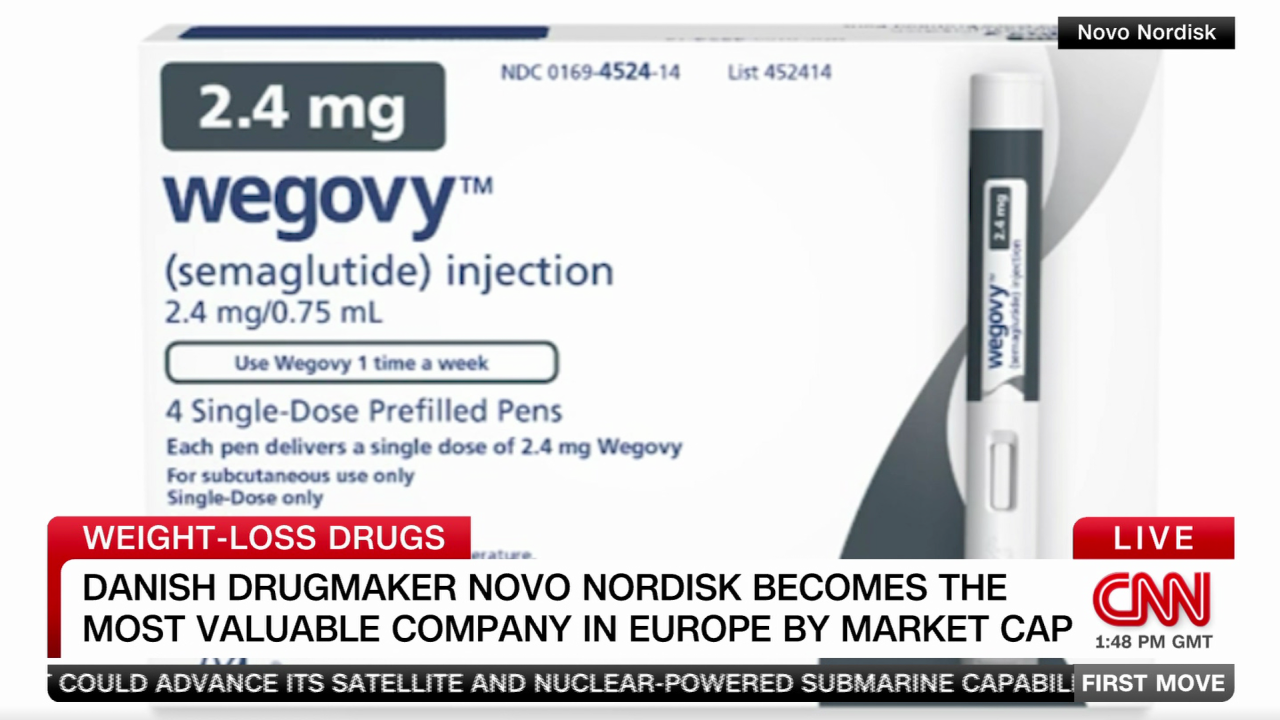A weekly dose of semaglutide, the key ingredient in blockbuster medications Ozempic and Wegovy, helped seven out of 10 patients newly diagnosed with type 1 diabetes stop taking insulin after three to six months in a small study.
The findings were published as correspondence in the New England Journal of Medicine this week and need to be replicated in a larger and longer trial. Lead researcher Dr. Paresh Dandona, SUNY Distinguished Professor of Medicine at the University at Buffalo Jacobs School of Medicine and Biomedical Sciences, said he hoped a longer study would reveal “whether we can change the whole natural history of type 1 diabetes.”
Semaglutide is approved for type 2 diabetes as Ozempic and for chronic weight management as Wegovy, medicines that have become so wildly popular that manufacturer Novo Nordisk can’t make enough. It’s shown in clinical trials to help control type 2 diabetes, lead to weight loss of about 15% of patients’ body weight, prevent heart attack and stroke and reduce symptoms of heart failure.
Type 1 diabetes, which affects far fewer people, is a chronic disease where the body’s own immune system typically attacks insulin-producing cells in the pancreas, creating a lifelong need to take insulin to control blood sugar.
Dandona said he and his team decided to test semaglutide in newly diagnosed type 1 diabetes because the drug is thought to tamp down the inflammation that can lead to the destruction of insulin-producing cells.
He noted previous research has shown that patients with newly diagnosed type 1 diabetes still have the ability to make some of their own insulin, so the team tested semaglutide in patients within three months of their diagnosis.
The results in the first 10 patients were “dramatic,” he told CNN in an interview. “I mean, unbelievable — it sounds like science fiction.”
The study enrolled 10 patients between the ages of 21 to 39, all of whom were taking both prandial insulin, which is taken at meals and as needed at other times, and a slow-acting form called basal insulin.
After three months, all 10 patients were able to stop taking prandial insulin. And after six months, seven patients were able to stop basal insulin as well. The patients were followed for up to 12 months.
The study also showed the patients had an increase in a measure of the body’s ability to produce insulin, known as C-peptide, as well as more stable blood sugar.
“Not only did we improve the diabetic control overall, get rid of insulin, but at the same time improve the capacity of the cells to produce insulin,” Dandona said.
Dr. Daniel Drucker, who pioneered research into the class of drugs including semaglutide called GLP-1 receptor agonists, said the research is “hypothesis-generating,” but “we need a much more rigorous study to really confirm the results.”
He said the findings were promising enough to warrant further study.
“We know that preserving beta cell function and preserving C-peptide secretion in people with type 1 diabetes for as long as possible translates into benefits,” Drucker, a senior scientist at the Lunenfeld-Tanenbaum Research Institute at Mount Sinai Hospital in Toronto, told CNN. “It results in greater glucose control, greater time in range, and easier-managed diabetes.”
Despite the early stage of the study, the results reverberated on Wall Street, sending stocks of companies that make products to deliver insulin, like Insulet and Tandem Diabetes Care, down more than 10% this week, as investors speculated semaglutide may reduce demand for insulin.
Get CNN Health's weekly newsletter
- Sign up here to get The Results Are In with Dr. Sanjay Gupta every Tuesday from the CNN Health team.
It’s way too early to conclude that will be the case, both Dandona and Drucker told CNN. But Dandona plans to seek funding to run a larger trial for three to four years to try to find out.
Novo Nordisk noted it didn’t sponsor this study and hasn’t had the opportunity to evaluate the data, but said “we support research for potential advancements of treatments for patients with Type 1 diabetes as well as other serious chronic conditions.”
The company isn’t pursuing trials of semaglutide for type 1 diabetes itself, “but we do continue to support investigator initiated studies,” a spokeswoman told CNN by email.
Dandona told CNN that Novo Nordisk declined to support his work previously, which he called “a pity.”
“But now,” he continued, “they will regret that.”



